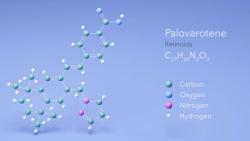Editor’s Note: This article was published in Pharmaceutical Technology Europe’s January 2021 print issue.

OR WAIT null SECS
- About Us
- Advertise
- Contact Us
- Editorial Info
- Editorial Advisory Board
- Do Not Sell My Personal Information
- Privacy Policy
- Terms and Conditions
© 2026 MJH Life Sciences™ , Pharmaceutical Technology - Pharma News and Development Insights. All rights reserved.
EMA Marketing Authorization Recommendations Rise in 2020
The number of recommendations for European marketing authorization of human medicines saw significant increase in 2020 over the previous year.
The European Medicines Agency’s Committee for Medicinal Products for Human Use (CHMP) kept a robust pace of marketing authorization application (MAA) reviews in 2020, with 96 total new marketing authorization recommendations as of 11 Dec. 2020 (1), 45% higher than in 2019, when the committee recommended 66 new MAAs for authorization (2).
New non-orphan medicines accounted for the majority of the positive recommendations, with 38 MAAs recommended for marketing authorization by the CHMP. New orphan medicine and generics/hybrids/informed consent MAAs were next, with 24 and 22 positive recommendations, respectively. Twelve biosimilar MAAs were recommended for authorization.
Gene therapy spotlight
Of particular note was Orchard Therapeutics’ gene therapy, Libmeldy (autologous CD34+ cell-enriched population that contains hematopoietic stem and progenitor cells transduced ex vivo using a lentiviral vector encoding the human arylsulfatase A gene). The therapy is intended to treat metachromatic leukodystrophy (MLD), for which there is currently no cure. MLD is a rare inherited metabolic disease that affects the nervous system and causes progressive loss of motor function and cognitive ability and, ultimately, death (3). If authorized, Libmeldy will be the first treatment approved for MLD in Europe.
Other notable recommendations
Other notable CHMP recommendations include Givlaari (givosiran, Alnylam Pharmaceuticals), Rybelsus (semaglutide, Novo Nordisk), and Zolgensma (onasemnogene abeparvovec, AveXis/Novartis). Givlaari would be the first treatment for the rare genetic disorder, acute hepatic porphyria, in adults and adolescents aged 12 years and older. Givosiran received approval in the United States from the US Food and Drug Administration (FDA) in November 2019 under the Givlaari brand name (4). Rybelsus would be the first oral glucagon-like peptide-1 receptor agonist for type 2 diabetes; the active ingredient, semaglutide was first approved in the US as a subcutaneous injection in December 2017 under the brand name Ozempic (5) and was later approved as a an oral tablet under the brand name Rybelsus in September 2019 (6).
Meanwhile, Zolgensma is a gene therapy for the treatment of spinal muscular atrophy. In the US, onasemnogene abeparvovec-xioi was approved under the Zolgensma brand name by the FDA in May 2019 (7).
In addition, the committee recommended granting a conditional marketing authorization for Retsevmo (selpercatinib) for the treatment of cancers displaying a rearranged during transfection (RET) gene fusion, including RET-fusion positive non-small cell lung cancer, RET-fusion positive thyroid cancer, and RET-mutant medullary-thyroid cancer (1). The committee also recommended granting a marketing authorization under exceptional circumstances for Lumoxiti (moxetumomab pasudotox) for the treatment of relapsed or refractory hairy cell leukaemia (1).
COVID-19 vaccine evaluations
Meanwhile, EMA’s work on COVID-19 vaccine evaluations continues. In January, the European Commission (EC) granted conditional marketing authorization to Moderna’s COVID-19 vaccine (8), following a positive recommendation by EMA, based on positive Phase III clinical trial data that showed over 90% efficacy in participants at risk of severe COVID-19 and a 94% reduction in the number of symptomatic COVID-19 cases (9).
Also in January, EMA received an application for conditional marketing authorization from AstraZeneca and the University of Oxford for their COVID-19 vaccine in development (10). EMA has stated that the assessment of the AstraZeneca/Oxford vaccine will run on an accelerated timeline, with the possibility that an opinion coulde be issued by 29 January.
Pfizer and BioNTech’s COVID-19 vaccine, Comirnaty, was the first to be granted conditional marketing authorization by the EC in December 2020 (11).
References
1. EMA, “Meeting Highlights from the Committee for Medicinal Products for Human Use (CHMP) 7-10 December 2020,” ema.europa.eu, 11 Dec. 2020.
2. EMA, “Meeting Highlights from the Committee for Medicinal Products for Human Use (CHMP) 9-12 December 2019,” ema.europa.eu, 13 Dec. 2019.
3. EMA, “Meeting Highlights from the Committee for Medicinal Products for Human Use (CHMP) 12-15 October 2020,” ema.europa.eu, 16 Oct. 2020.
4. FDA, “FDA Approves First Treatment for Inherited Rare Disease,” Press Release, 20 Nov. 2019.
5. FDA, “Novel Drug Approvals for 2017,” fda.gov, accessed 30 Dec. 2020.
6. FDA, NDA Approval Letter, fda.gov, 20 Sept. 2019.
7. FDA, “FDA Approves Innovative Gene Therapy To Treat Pediatric Patients with Spinal Muscular Atrophy, a Rare Disease and Leading Genetic Cause of Infant Mortality,” Press Release, 24 May 2019.
8. Moderna, “European Commission Authorizes COVID-19 Vaccine Moderna in Europe,” Press Release, 6 Jan. 2021.
9. EMA, “EMA Recommends COVID-19 Vaccine Moderna for Authorisation in the EU,” Press Release, 6 Jan. 2021
10. EMA, “EMA Receives Application for Conditional Marketing Authorisation of COVID-19 Vaccine AstraZeneca,” Press Release, 12 Jan. 2021.
11. EMA, “EMA Recommends First COVID-19 Vaccine for Authorisation in the EU,” Press Release, 21 Dec. 2020.
Article Details
Pharmaceutical Technology Europe
Vol. 33, No. 1
January 2021
Pages: 18–20
Citation
When referring to this article, please cite it as F. Mirasol, “EMA Marketing Authorization Recommendations Rise in 2020,” Pharmaceutical Technology Europe 33 (1) (2021).

 Download Issue: Pharmaceutical Technology-01-02-2021
Download Issue: Pharmaceutical Technology-01-02-2021

